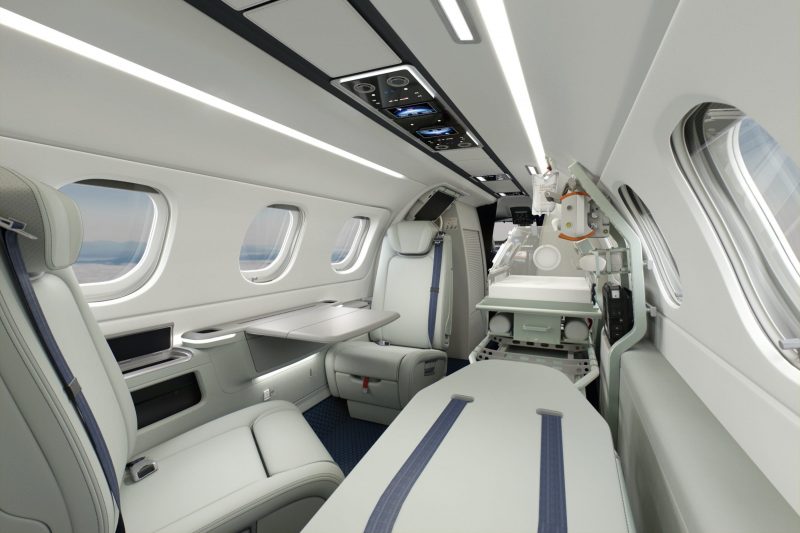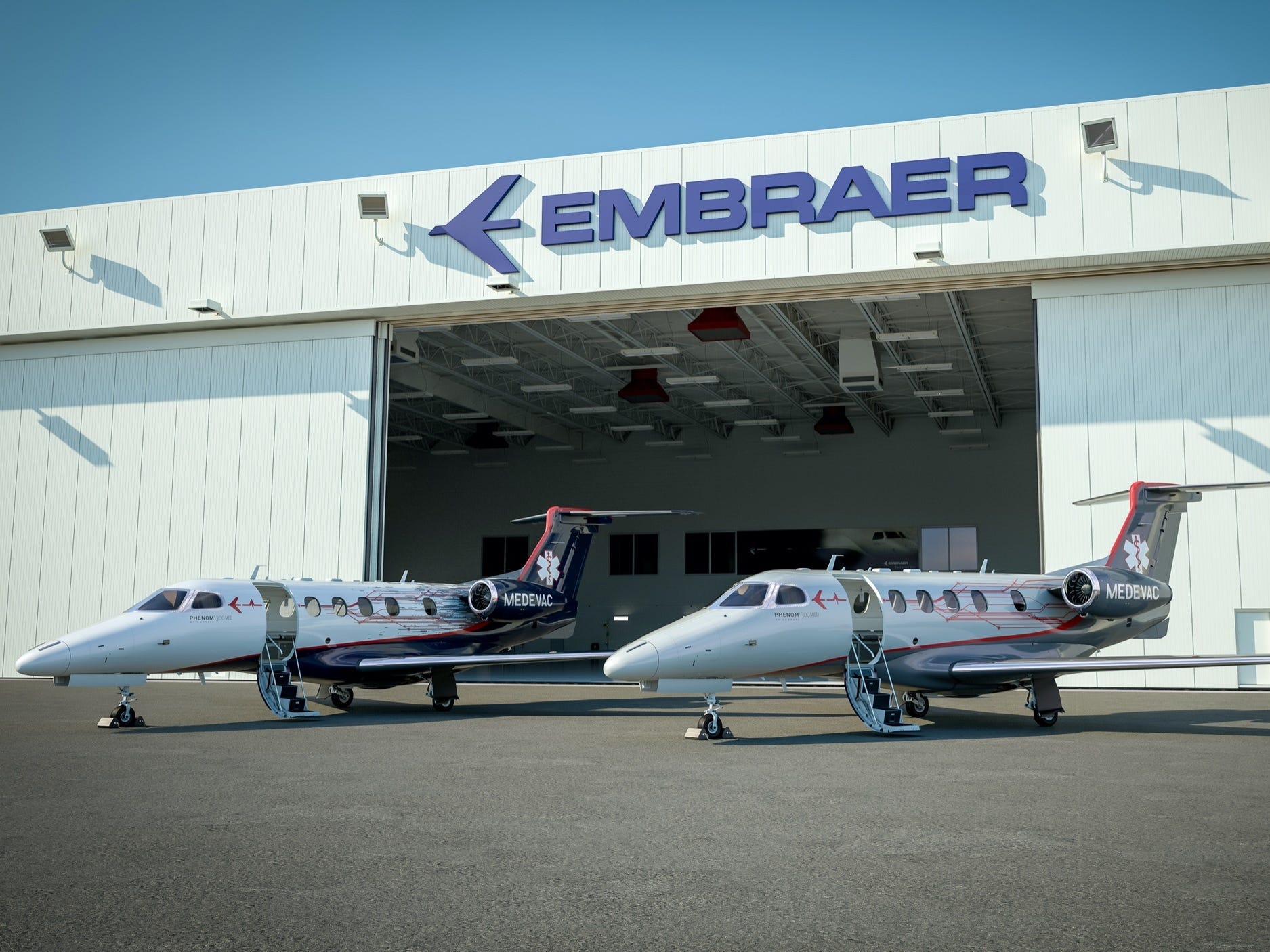- Embraer has a new air ambulance concept for its Phenom 300E private jet aircraft.
- Designed by engineering firm umlaut, the concept allows for two stretchers to be placed in the passenger cabin alongside three passenger seats, with Aerolite technology powering the flying medical suite.
- The $9.45 million light jet is part of a best selling aircraft family at Embraer with over 550 orders placed since its inception.
- Visit Business Insider’s homepage for more stories.
Brazilian aircraft manufacturer Embraer just unveiled a new air ambulance platform for one of its private jets, the Phenom 300E.
The flying medical suite can transport patients with capacity for two stretchers in the largest configuration and the latest medical technology onboard. The concept was designed by the engineering firm umlaut to be used with tech from Aerolite, which specializes in aeromedical equipment.
Private jets have long been used in medical transport as they offer an unparalleled level of convenience and privacy compared to commercial airliners. Instead of relying on airline timetables, private aircraft can transport patients around the globe on a moment’s notice.
In-flight doctors and nurses will often ride along on these flights, administering care during the journeys.
Boasting advancements in speed and range, the latest addition to Embraer's Phenom line-up costs $9.45 million and can fly nearly the width of the US without having to stop for fuel. The Phenom 300 family itself has gained over 550 orders and is a staple of private jet operators around the world.
Take a look inside.
Embraer's new air ambulance concept was designed using the Phenom 300E, the enhanced version of the Phenom 300.

The Phenom 300 is a favorite among charter operators thanks to its low operating costs, long-range capabilities, and high cruising speeds, as Business Insider's David Slotnick found on a recent demonstration flight with AirShare.

Its top speed is 495 miles per hour while it can climb as high as 45,000 feet – high enough to actually see the curvature of the Earth.

Source: Business Insider
And those who've flown on it say that cabin is incredibly spacious, for a light jet.

Source: Business Insider
The 300E builds upon that platform with improvements like faster cruise speeds and a high tech cabin.

Source: Business Insider
The 300's younger sibling can fly at 521 miles per hour with a range of 2,200 miles, nearly enough to fly non-stop coast to coast in the US.

Source: Business Insider
And the jet only requires one pilot to fly it instead of two, putting it in the category of personal private jet.
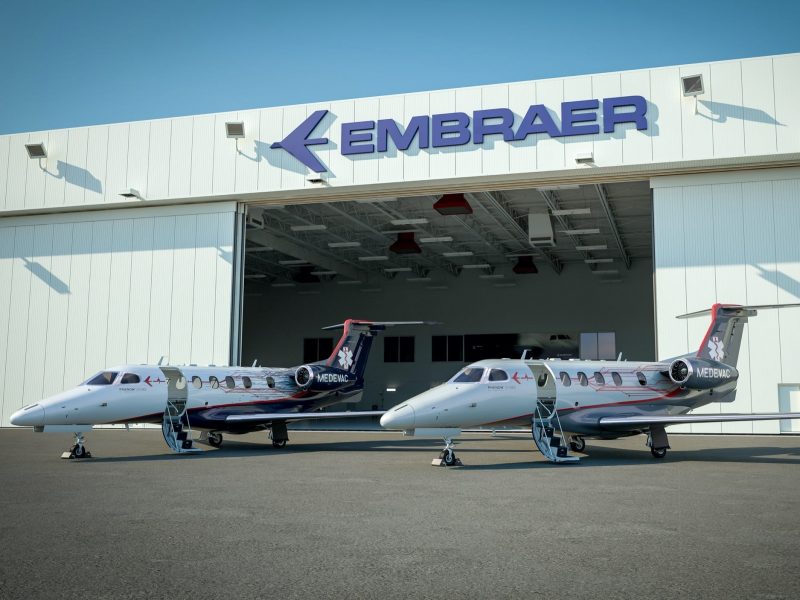
Read More: The 8 best 'personal' private jets that only require one pilot to fly
Introducing the air ambulance concept expands Embraer's potential customer base as an entire segment of the private aviation industry is dedicated to medical flights.

Air ambulance flights are highly lucrative, with insurance often helping pay the bill.
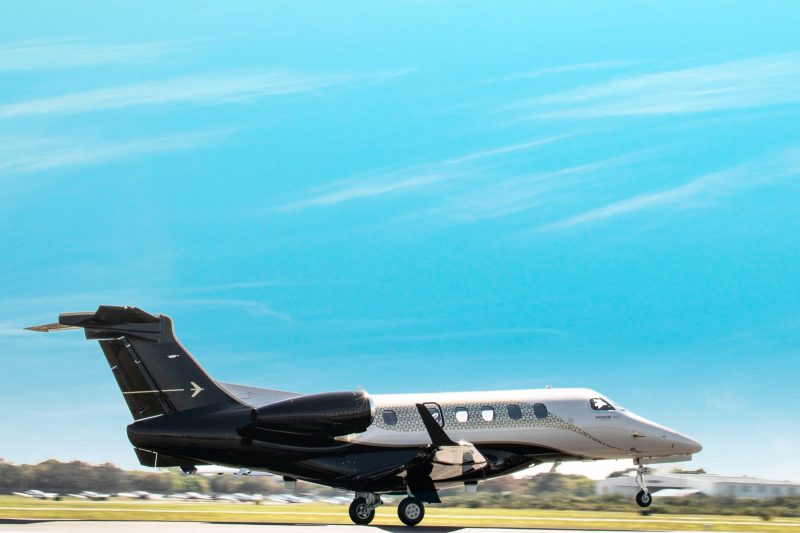
Those aircraft, however, need to be reliable and ready to go at a moment's notice since medical emergencies can occur suddenly, two boxes the Embraer jet easily checks off with the aircraft a best-seller for the company.
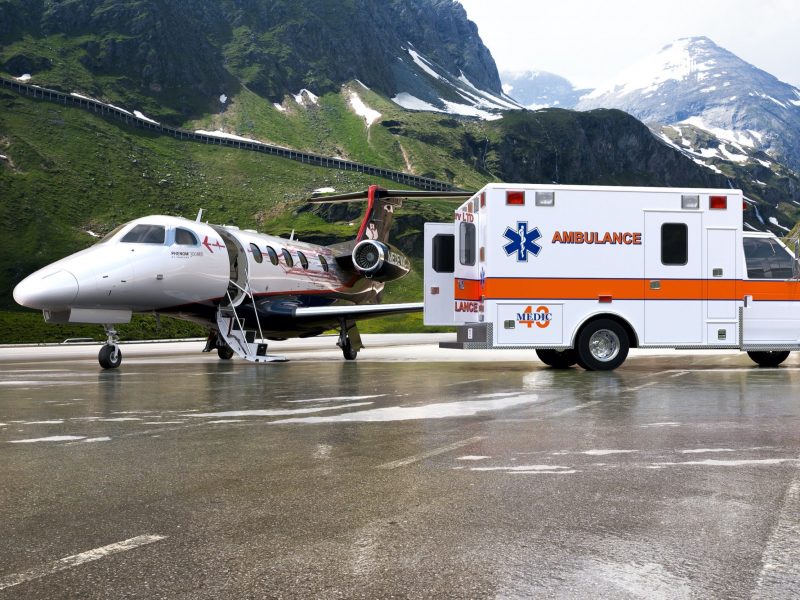
Source: Business Insider
Despite its small size as a light jet, the cabin is large enough to house up to two stretchers...
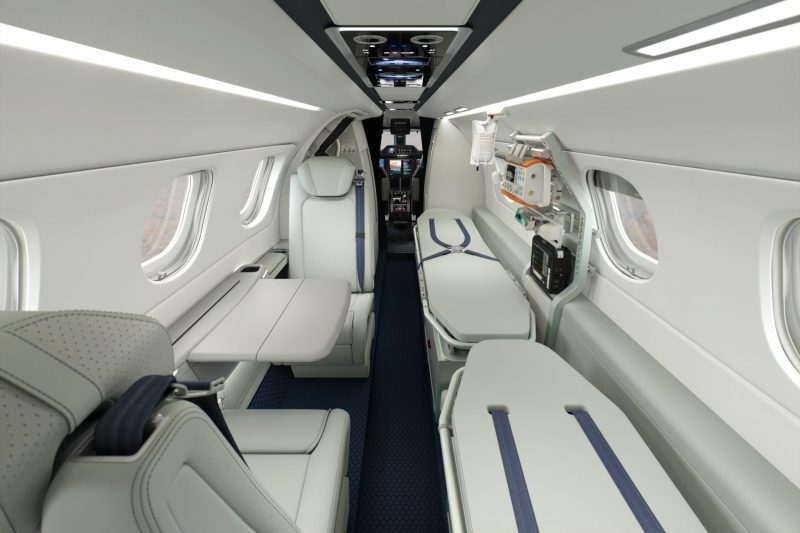
Or one stretcher and one incubator.
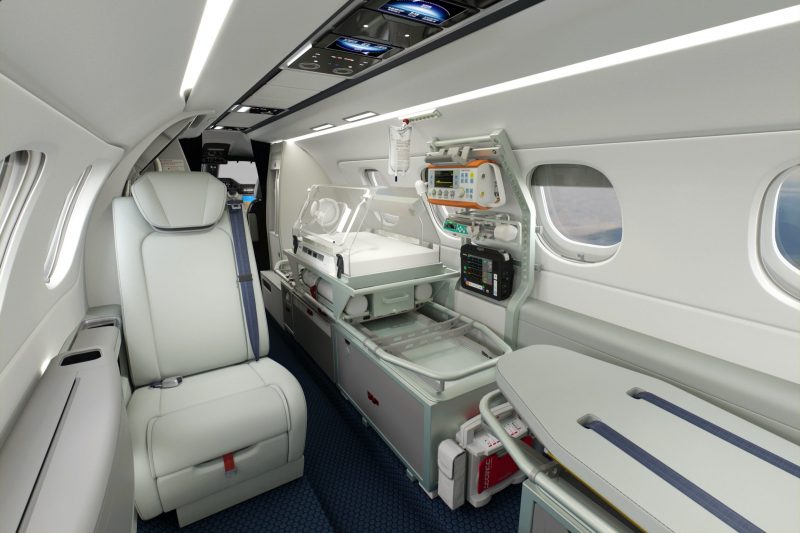
The medical equipment only takes up one side of the plane with three club seats for passengers and the in-flight caregivers.

Embraer worked with engineering firm umlaut to design the cabin that could house medical technology from Aerolite.

Onboard nurses and physicians won't be performing surgeries or invasive operations at 45,000 feet but they'll need to keep the patients stable for the potentially long journeys.
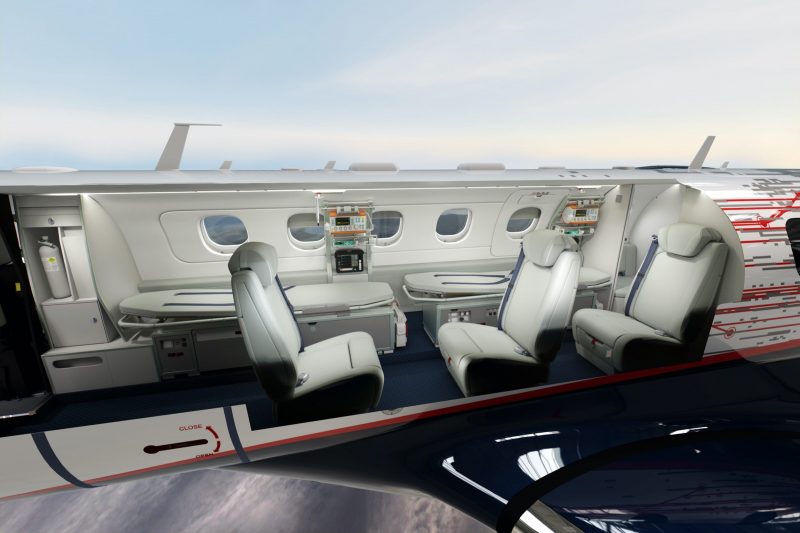
Medical emergencies can happen anywhere and that often means lengthy, multi-stop trips to get patients home or to the best hospital to handle a particular ailment.

The aircraft's unseen amenities also help when transporting patients as the cabin altitude on the Phenom 300E is a mere 6,600 feet – 1,400 feet lower than most commercial airlines – which reduces jet lag and lessens the negative effect of flying on the body.
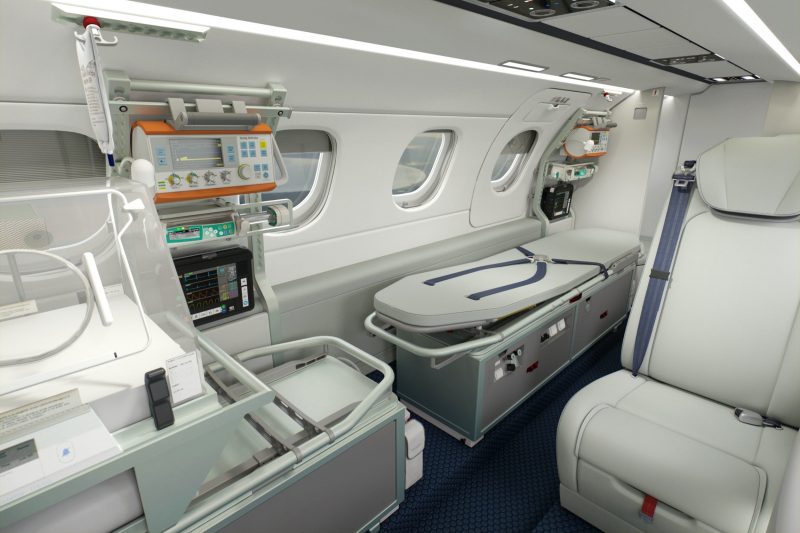
Source: Business Insider
With a price tag of $9.45 million – not including the medical equipment – the Phenom is also great value for money compared to similar light jets with smaller and less capable cabins.
